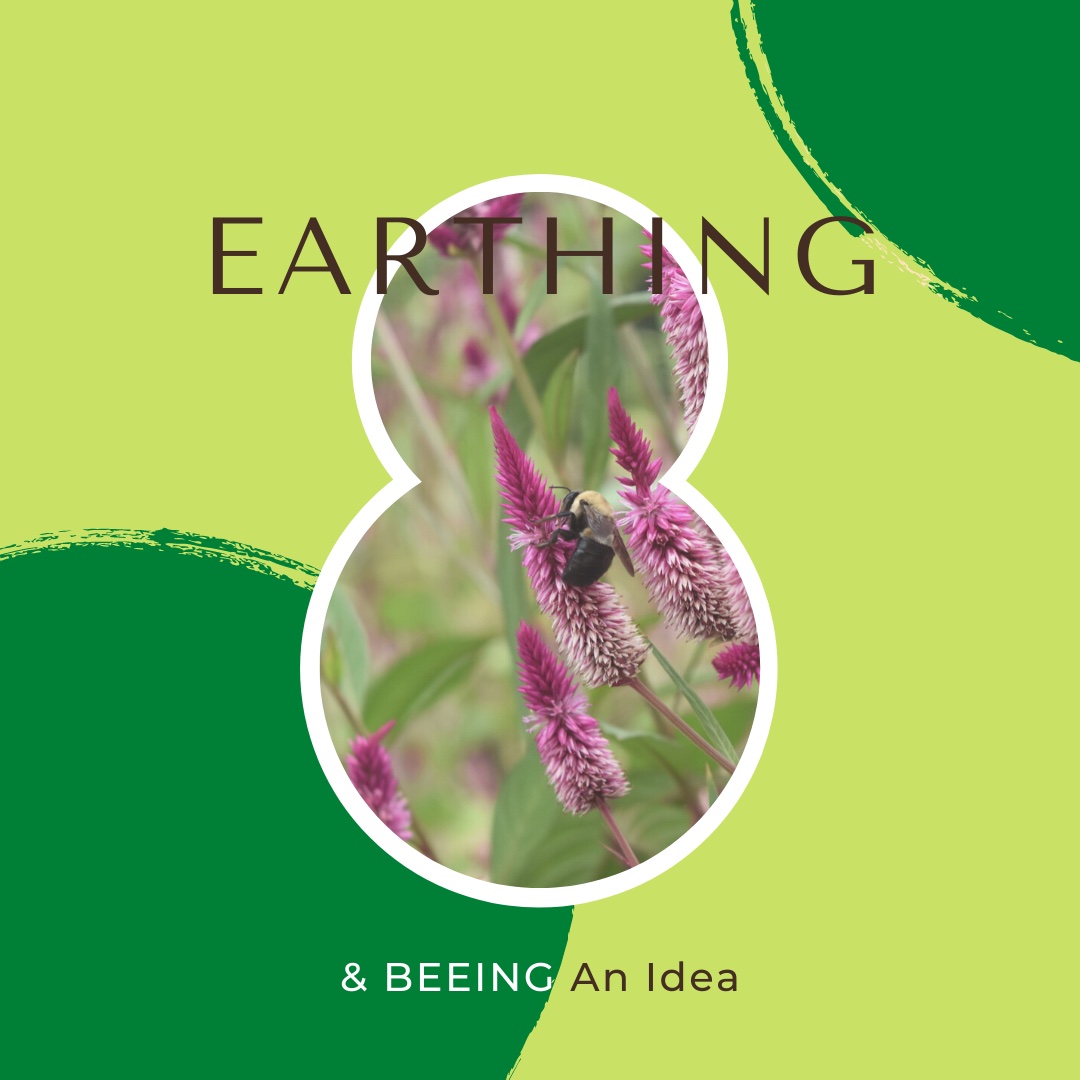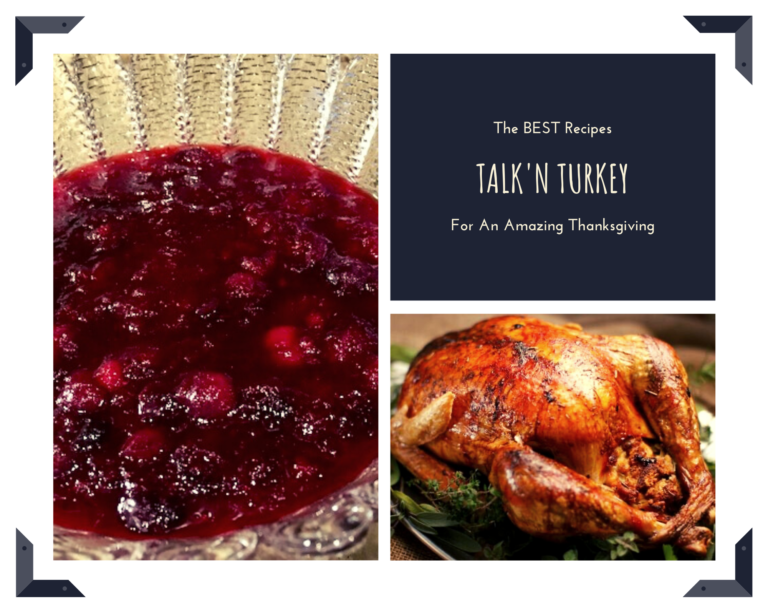BEEING that April 22nd is EARTH DAY, I think that it is a great opportunity to learn about a very important insect in our world; honey bees. What they do for us, what we can do for them and how we can be involved in their care.
Fun fact: To produce a kilogram of honey, bees fly the equivalent of three times around the world in air miles.
As I have mentioned once or twice before, one of the coolest things about attending and hosting parties is the opportunity which they provide to meet and introduce new people and, in the process, learn some new things from them. When I host a party and hear how much it was enjoyed, I always say that the credit goes to all the amazing friends who came. I only provide the setting– the back-drop to set the stage. It is always the guests who bring the magic? The people attending make everything come together.
Today, I am so very excited to introduce you to three of these amazing guests; Pati Dahmen and Dave and Pam Zack. Among their many talents, these brilliant people are bee keepers and have some great IDEAS TO ENTERTAIN and share with you about these magnificent producers of honey and pollinators of crops, aka bees. ENJOY!

Patricia Dahmen is co-owner of Ray’s Demolition and Dahmen Honey Farm.
2001-02 International President of Executive Women International, 2007-08 Chair, Inland Northwest Community Foundation, 2015-2017 Chair,
KSPS Public TV, 2018 Co-chair Christmas Tree Elegance, MAC Foundation Board of Directors 2017-2020
BEES AND WHAT THEY DO FOR YOU
Pati Dahmen, Journeyman Beekeeper
Spring is slowly arriving to my little spot on latitude 47 degrees north. Pussy willows are budding and the first dandelions of the season are beginning to bloom. I’m so excited because these two plants are important food sources for my precious honey bees.
Honey bees are amazing little creatures that are vital to human life. Say what? Yes, Apis Mellifera (the Latin name for the honey bee) are responsible for so much more than making that delicious sweet treat we love to drizzle on freshly baked biscuits or warm from the oven corn bead.
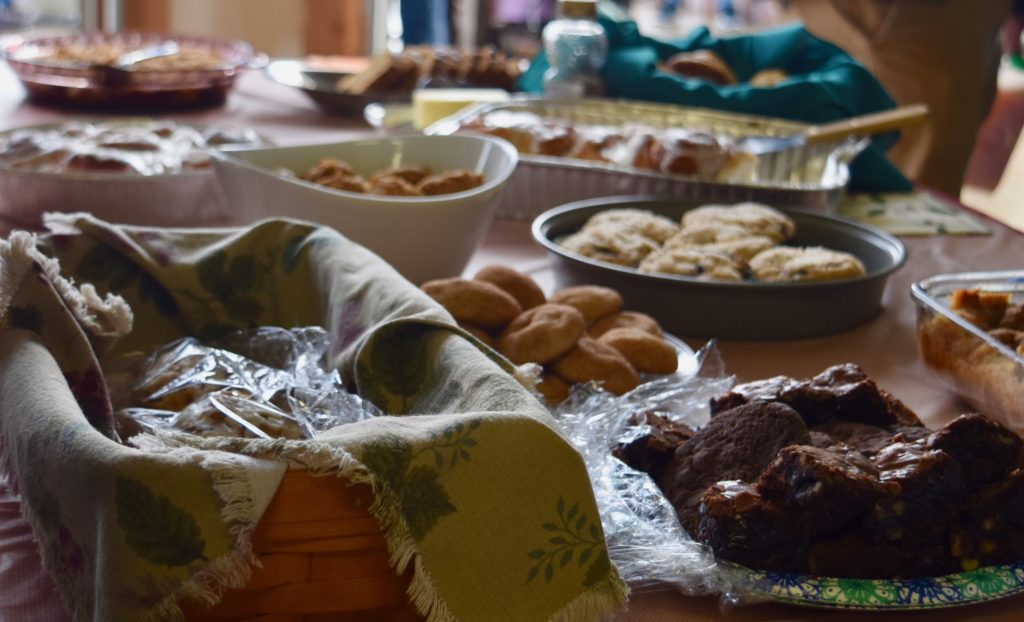
Honey Bees Contribute To The US Economy
My “girls” as I affectionately call them, and their sisters are responsible for pollinating one third (1/3) of the fruits and vegetables we eat on a daily basis. Honey bee pollination annually contributes over $15 billion to the US economy! In addition to pollinating the foods that we consume, the girls also are responsible for pollinating the plants that a lot of wild life feed on.
As the girls are foraging for pollen and nectar they are also pollinating plants that control erosion, beautify our landscaped yards and improve our property values.
In addition to pollinating plants and making honey, bees produce a product called propolis. Beekeepers refer to it as “bee glue”. The bees produce it using the resin from trees and they will use it to seal cracks in their hives as well as to protect their hive from invaders. Propolis has been collected and used by humans through out the ages. It is antibacterial and has been used to close wounds, to treat warts, sore throats, seasonal allergies and has been shown to be effective in some types of cancer treatment.
Honey bees are vegetarians and will not bother you at your picnic. However, if they feel threatened by humans, they will sting. Because their stinger is barbed they will die after trying to defend themselves.
Some people choose to get stung as they feel it helps them control pain associated with certain ailments. Not everyone can do this as they may be allergic to the venom. Bee Venom is used to make certain medicines for the treatment of rheumatoid arthritis and neuralgia. Bee venom contains approximately 20 naturally occurring antibiotics.
Honey bees also make a product called royal jelly. This is a milky secretion produced by worker bees and gets its name because it is used for the development and nurturing of all queen bees. Royal jelly is used in the making of anti-aging cosmetics and it may be effective in reducing some menopausal symptoms.
Bee dependent plants touch human life, whether providing us a bountiful food supply or a pleasant walk through a park. Bees may not be necessary to human life but they are necessary to life as we know it. And all of the bees that provide us with the food we eat and the flowers we admire are female!
KSPS Organization, Inland Northwest Community Foundation, Inland Empire Beekeepers Association
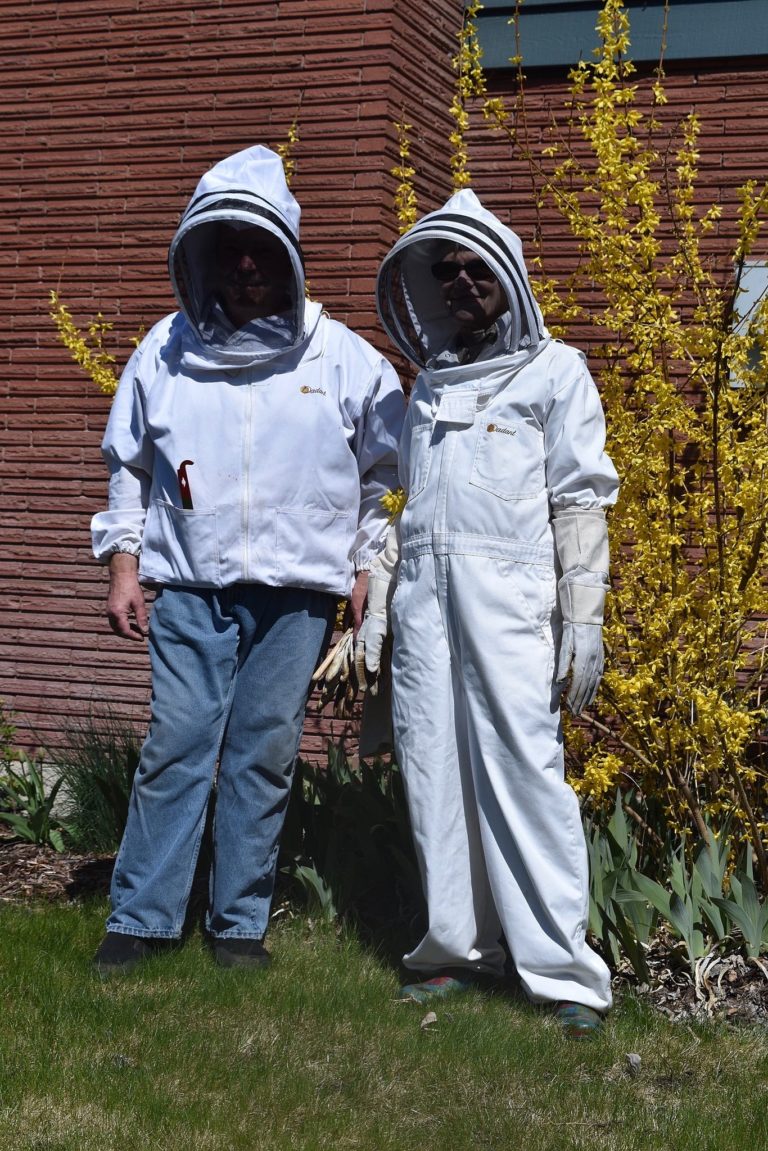
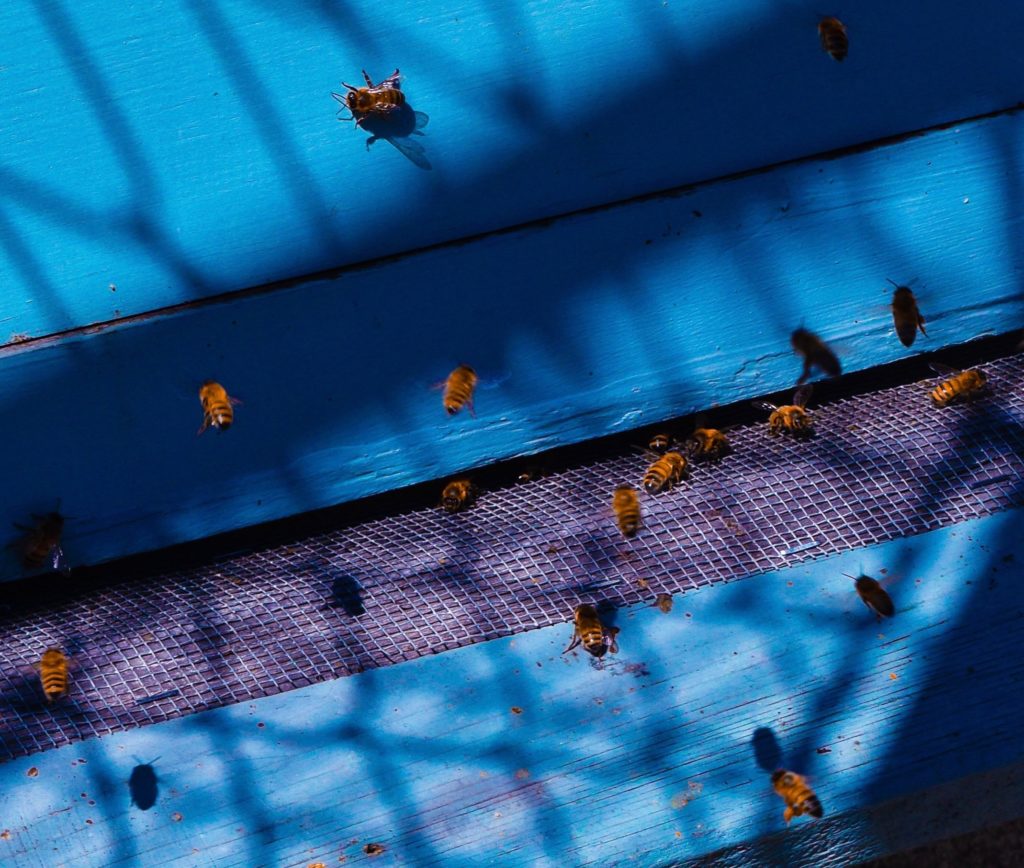

Dave Zack is a happily retired advertising and marketing executive living in Spokane Valley, Washington. He loves music, ballroom dancing, bicycling, gardening, beekeeping, vermiculture composting, xeriscape landscaping, and travelling the world with his wonderful wife of 50 years, Pam (not necessarily in that order)..
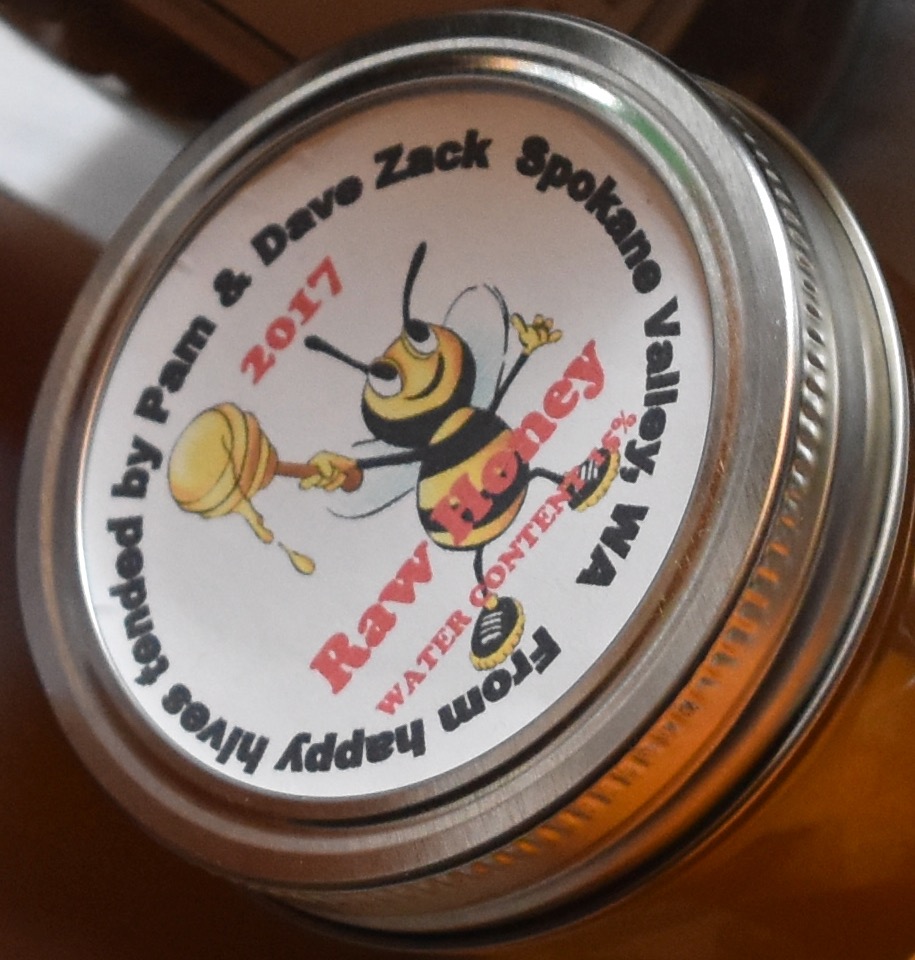
What’s the Buzz on Beekeeping?
Dave Zack, Beekeeper
It’s the greatest icebreaker ever. When people I meet find out I’m a beekeeper, the interest lamp goes “on” and the conversation almost always draws other people into it as well. Everyone is 1) already a beekeeper and wants to compare experiences, 2) has thought about it and wants to know how to go about getting started or 3) has read about the declining bee populations and wants to know if the world really will come to end if we lose the bees. In any case, the conversation is lively and I have the perfect opportunity to explain my love affair with an insect.
Honeybees are pollinators. So are a whole slew of other insects, birds and critters. But honeybees are, by far, the greatest of the great. It’s all those little hairs on the bees that accidentally collect pollen as the bees are filling their little built-in hind leg saddlebags with pollen or nectar that kindles the flowering sex orgy that in the spring (to quote Bette Midler) becomes the rose. Well, to be fair, we should also include most vegetables, fruits, flowers, and nuts. No wonder there’s a lot of talk about the decline of the honeybee.
If you’ve already taken the plunge into the realm of beekeeping, congratulations. You are part of a small but determined legion of backyard hobbyists that throw large sums of money at a relatively small box with thousands of busy little “girls” working their tails off. (all honey bees are female except for a few drones that are kept around simply for the use and pleasure of a queen. If you think I’m kidding, just watch what happens in the fall when the hive is preparing for winter. All the drones are escorted out of the hive, along with their little suitcases as a chorus of Hit the Road Jack is sung in the background)
As beekeepers we all learn the hard lessons of trying to keep a colony of bees alive and healthy for more than one season, a feat I find more and more difficult as my experience grows. Honey bees have a lot of enemies. Bears, yellow jackets, mice, racoons, and other honey bees come to mind as natural connoisseurs of the treasures of the hive. Even more onerous are bee parasites like varroa mites and trachea mites that will weaken a hive so badly that it will not survive through a winter without treatment. There are other diseases, but I don’t want to put you off your dinner, so I’ll just say that healthy, happy bees need us…and believe me, we need them.
If you were in that second group that has an interest in beekeeping but has no idea about how to go about it, a word of advice. Do it. Alright that’s two words but why not jump in? A thousand-dollar bill should do it and then you can join the rest of us backyard hobbyists struggling to do a Vulcan mind meld with the Queen of Theehive to figure out what they need and when they need it. Her subjects are highly energetic and very industrious and literally work themselves to death to feed and nurture her. In beekeeping, just like chess, it’s all about the queen.
Take A Class
For you, the future beekeeper, the best way to gain the keys to the kingdom is through education. Take a class. It’s a must, no shortcuts. Find a class through your local beekeeper’s association, community college, your local university extension office or at the very least, find a beekeeper who is willing to mentor you and buy the beekeepers bible, Beekeeping for Idiots®. There are a lot of books out there on beekeeping. They all offer a wealth of knowledge but there’s something special about BFI that makes me go back to it time and time again. In any case, get that edumacation!
An amazing phenomenon about these beekeeping classes is that they all end in late spring about the time that your bee colony(s) arrive. There you are with your freshly printed apprentice beekeepers diploma, all that wonderful beekeeping stuff that your thousand-dollar bill bought, and one or more freshly shipped bee colonies with 10,001 bees (a screened box containing 10,000 worker bees and 1 queen in a separate little box of her own) ready to settle into your yard. Believe me when I say that your first year as a new beekeeper is a wonderful journey and a magical marriage of man and a wonder of nature that can never be repeated no matter how long or how many hives you ultimately adopt.
What’s Happening To Our Bees?
The notoriety of the peril of the honey bee is real. Colony Collapse Disorder is the latest disaster to affront the honey bee. For several years, no one had a clue of why this nearly empty hive was suddenly appearing when days earlier it had been hale and hearty. Today we know why but I seriously doubt that we have the political or practical will to fix the problem. We are destroying the immune system of the honey bee with pesticides and insecticides. We are giving our honey bees the equivalent of AIDS.
How do we fix it? Stop using pesticides and insecticides. Of course, that can never happen due to our American system of monoculture farming and the unbelievably intense and effective lobbying of our mega giant chemical companies.
Right now, we’re at a stalemate. Commercial beekeepers are still shipping their bees, by the semitruck load, to monstrous monoculture farms all over the country and losing half of their hives every year. How in the world can they sustain losses like that and keep going? By creating hives in factory mode. It’s not a natural process nor is it a pretty picture. It’s almost surreal to watch it but so far, the bees just keep being bees and go on and on doing their bee thing.
If I’ve painted a dark and gloomy picture for the survival of the honey bee, be assured that honey bees are a master work of nature and mother nature is indeed a wise if somewhat abused healer of all things. Bees have been around for millennia without the help of humans. I believe they’ll find a way around the natural pests, the manmade death cocktails currently being served up by Monsanto, Bayer, Dow and friends as well as the questionable sustainability of monoculture agriculture methods that we Americans find so compelling.
All that being said, it’s a great joy for me to dawn that white hazmat looking bee suit, open up the hive and visit the girls. They tell me how they are doing by the progress of their honey and brood production. That fabulous earthy sweet smell of bee industry and the hum of 60,000 very busy and industrious insects going about their business never gets old. It’s a love affair with an insect. I admit it. My little backyard hive doesn’t make much difference in the global scheme of the planet, but it feels right for me to host these wonderful little pollinators. To watch them literally work their wings to the nubbin providing sustenance and protection to their queen and food for their, and our, survival is an amazing cycle to which they graciously let me be a witness.
Oh yeah, and there’s honey there too.

Happy Birthday Maddie


Ink drawing by Brandt Miller, (Lisa’s super talented son)


